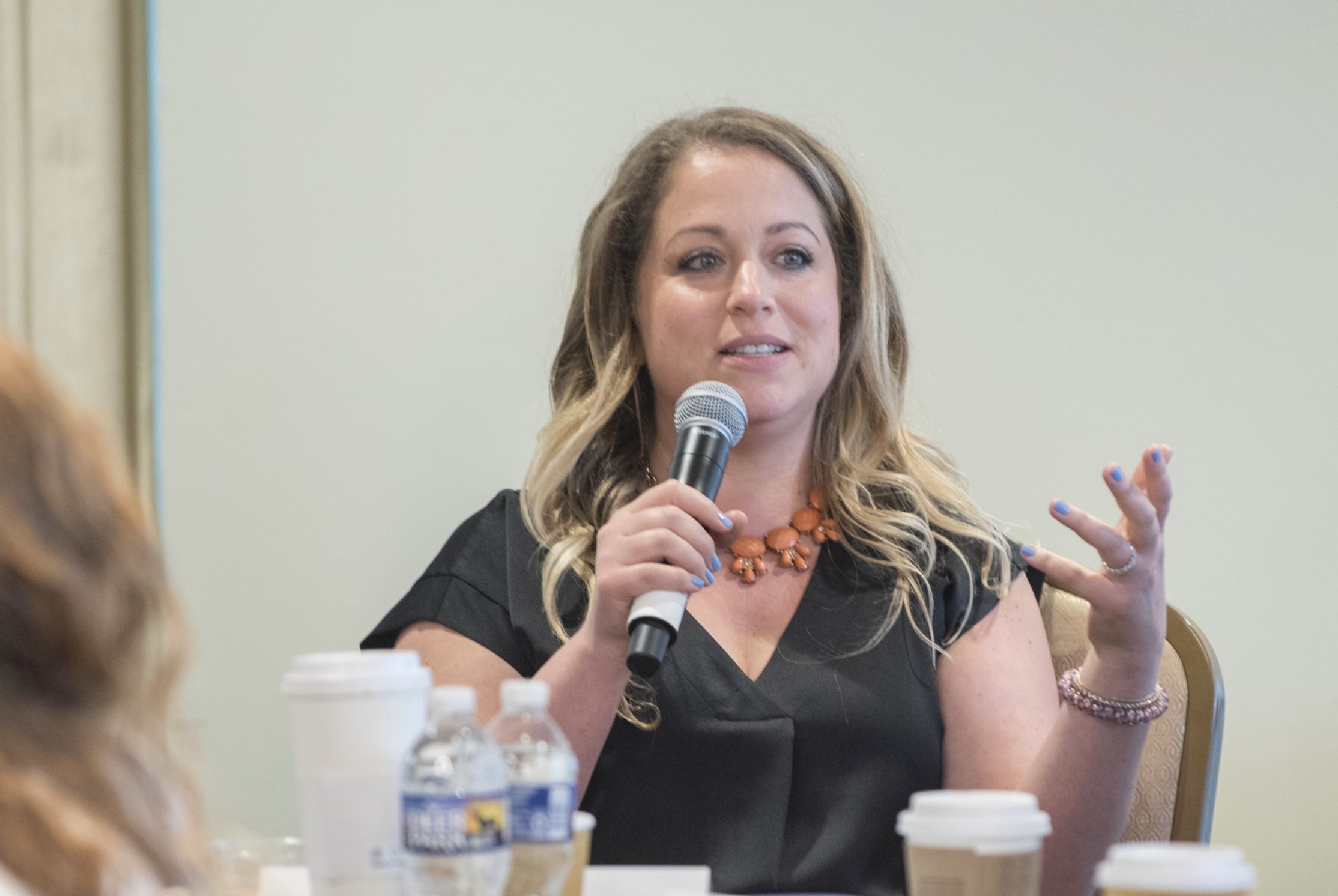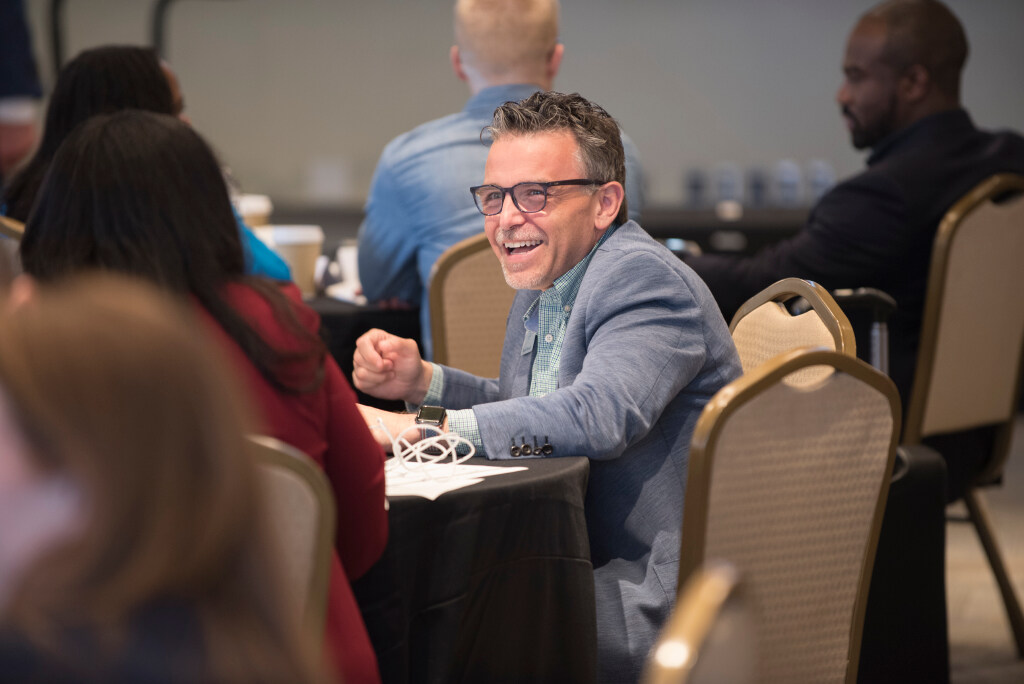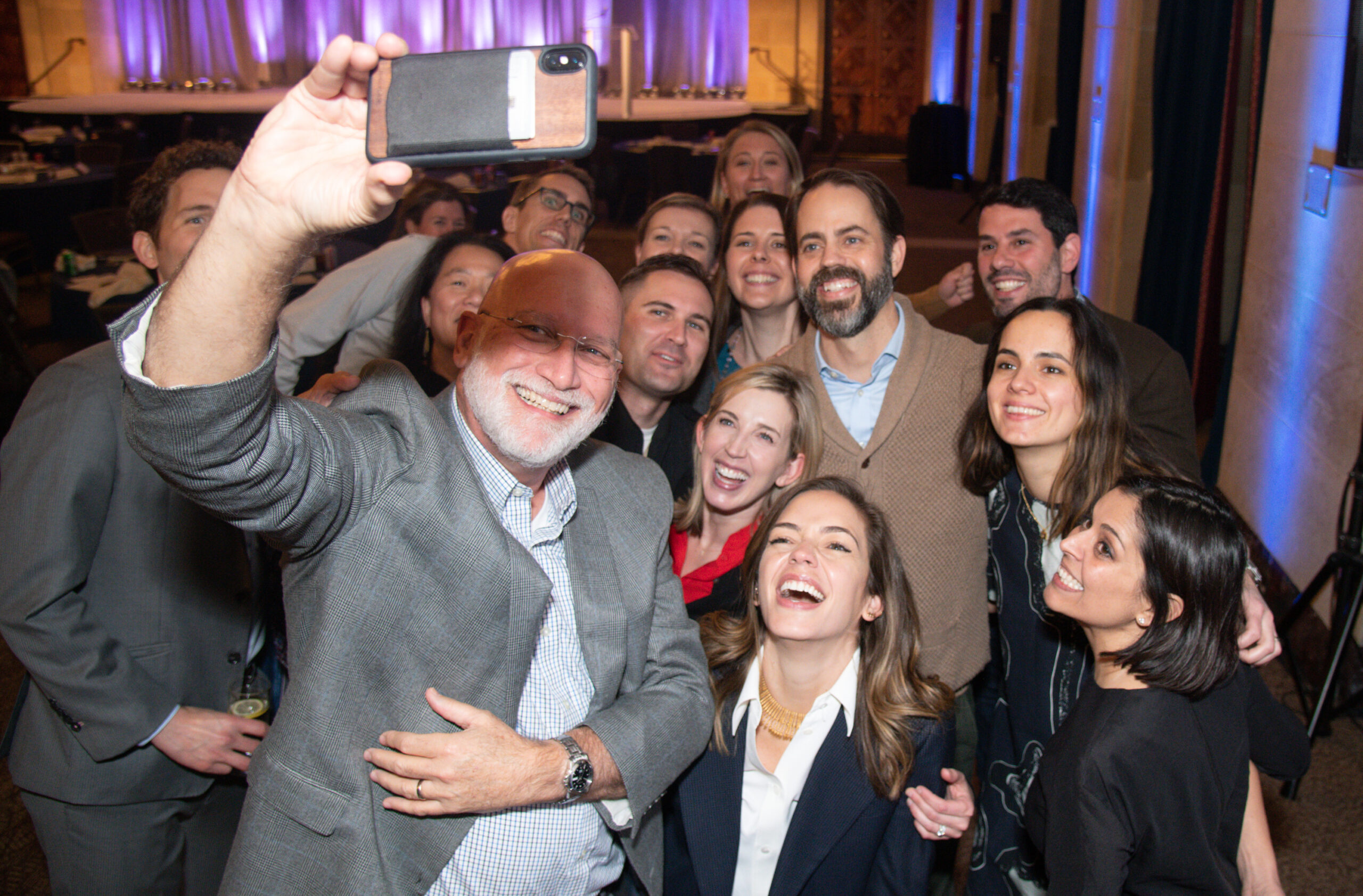By Kinsey Clemmer
Growing up in a home with domestic violence, Danielle Rugoff learned the importance of language from a very young age, quickly realizing that her word choice could decrease or increase the temperature in her household when her father came home from work.
Now the Presidential Leadership Scholar and Dallas-Fort Worth native is urging all Americans to be more intentional with their language as the country experiences increased polarization.
“It’s no surprise to any of us that the country is toxically divided and that we struggle to communicate effectively across the divide,” Rugoff said.
Rugoff is one of 537 Presidential Leadership Scholars who are all facing critical challenges at home or around the world. Through the program, she’s working to bridge divides in language with her new initiative, Purple Lexicon. It’s designed to flag words that may carry political weight for certain groups so that communicators can be more intentional and effective when they speak or write.
For example, many don’t realize that two common terms for people who lack a place to live – “unhoused” and “homeless” – carry with them a lot of political baggage. The words have similar dictionary definitions, but progressives tend to favor “unhoused,” while conservatives are more likely to use “homeless,” said Rugoff.
“Unhoused,” she explained, is a more passive term which implies that the person may not have shelter because of social conditions or circumstances beyond their control. But “homeless” connotes more agency – that the situation arose because of their own choices. She recommends using both unhoused and homeless in the same sentence when trying to reach people across the political spectrum.
There are in fact very few politically neutral terms today, so when a speaker uses a specific word, many listeners may tune out because they hear a term they perceive as partisan, and as a result, no longer trust the speaker, Rugoff argues. This leads to uninformed citizens and lack of progress with policy issues, circumstances she’s trying to combat.
“I’m using social science – which indicates that people are more willing to keep reading, and can ignore a word they view as from “the other side” of the aisle, if they also see a word or phrase that they trust –to guide people to simultaneously use the most trusted terms from both sides of the aisle in an effort to rebuild our ability to solve problems together,” she said.
Even the most well-meaning and well-intentioned individuals who want to effectively communicate to broad audiences suffer from either only knowing the words used predominantly in their sector and network or not understanding the implications of how their words might be received, she said.
Through Purple Lexicon, she’s targeting leaders in our communities who have a large daily audience and circle of influence. Think media, business and political leaders, and educators. But she also hopes Purple Lexicon will become a resource for ordinary Americans having conversations on polarizing or tense topics.
Her experience in the 2024 Presidential Leadership Scholars program – a joint effort of the George W. Bush Presidential Center, the Clinton Presidential Center, the George H.W. Bush Presidential Library Foundation, and the LBJ Foundation – has helped her catapult Purple Lexicon forward as she works to build out her team and fundraise for launch.
“I really do believe that PLS and the four presidential institutions that are behind it are building a nucleus of leaders and moving the country forward by developing business leaders and social sector leaders who want to work across the aisle and solve problems,” she said.
But Rugoff’s servant heart and drive to lead change started long before she thought of Purple Lexicon or joined the program.
And as a young Jewish girl from a family that experienced generations of antisemitism in Texas and Oklahoma, she was determined to help do the work needed to improve our nation. Rugoff attended the Richardson Law Magnet school as a teen because she wanted to be a civil rights lawyer or Supreme Court Justice. She later attended the University of Texas at Austin where she got involved in student government after someone she knew from Dallas was attacked by a neo-Nazi while standing in front of their fraternity house.
“I realized UT Austin didn’t have a non-discrimination policy,” she said. “They had one for professors, but they didn’t have one that affected students and involved hate crimes. And so I worked with the administration and wrote the anti-hate crime policy.”
It’s this drive to make social and civic change along with her experience in the Presidential Leadership Scholars program that will fuel her rollout of Purple Lexicon over the next year, creating a tool for everyone that might help turn down the temperature.
“What I hope to create is a tool in one single location, in a very digestible, end user-centric way, [where] people can simultaneously understand the etymology, policy implications, and political connotations of language with the X factor being using polling to show social trust,” she said.
Kinsey Clemmer is a Communications Manager at the George W. Bush Institute.


